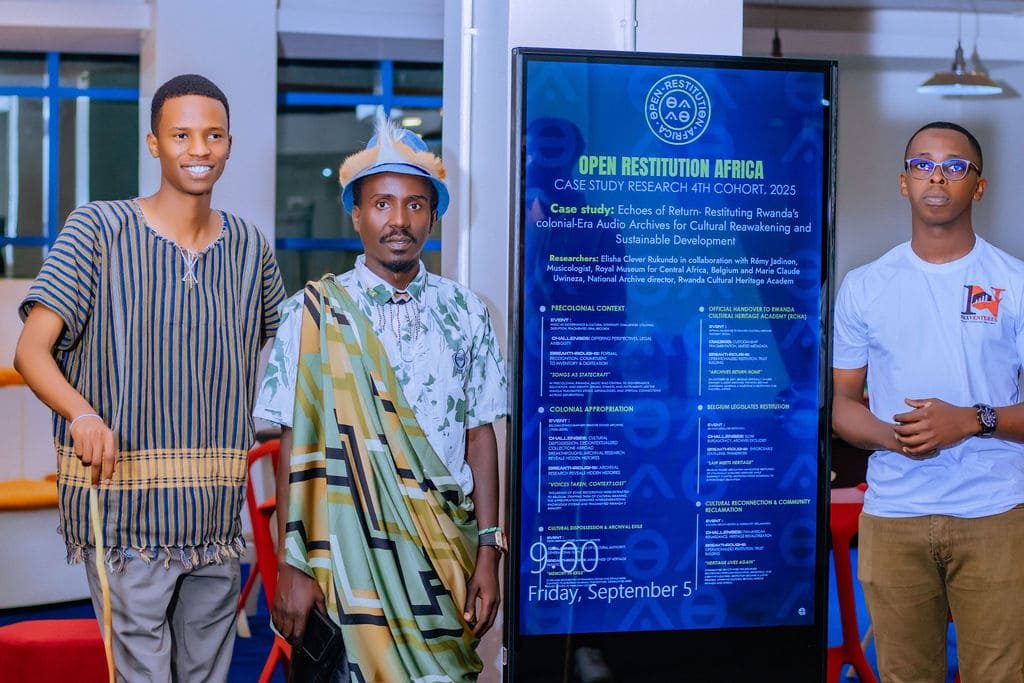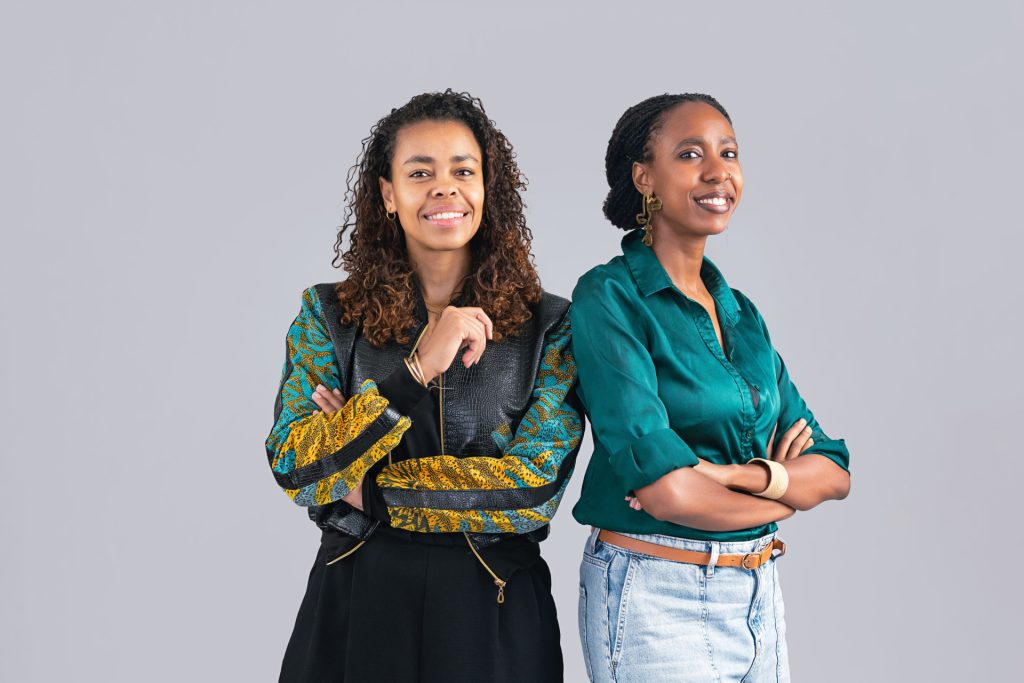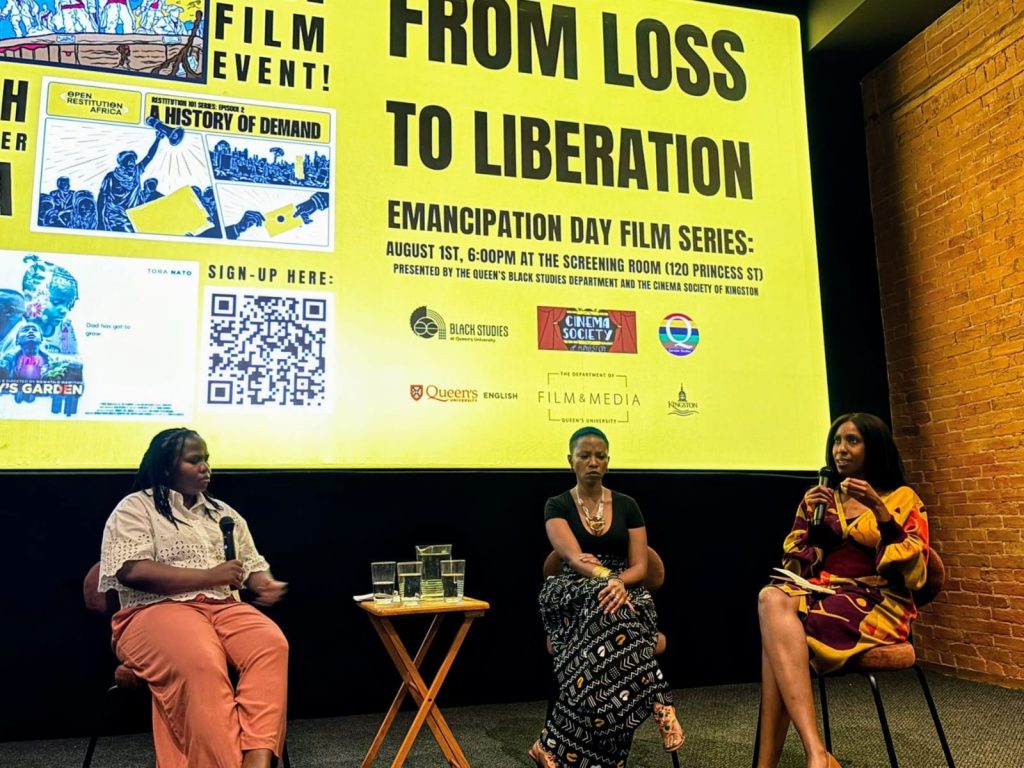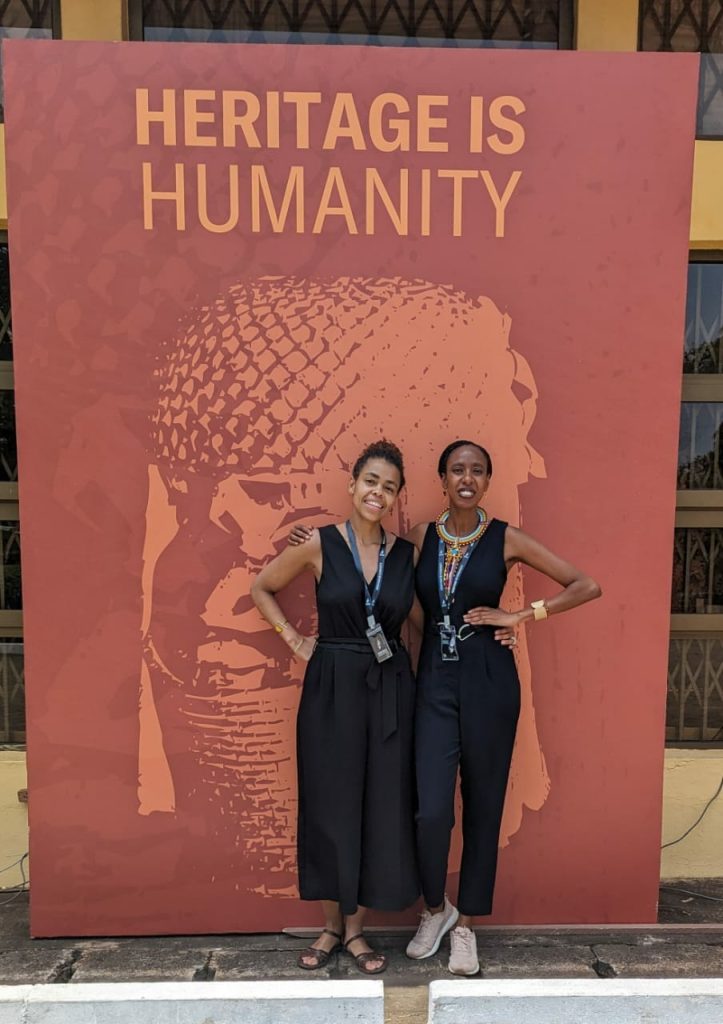Open Restitution Africa is pleased to share that we have completed our largest and final cohort of Case Study Researchers. These individuals brought with them a breadth of experience, disciplinary depth and a shared commitment to reframing Africa’s restitution story. Working closely with our research team, they uncovered and highlighted national histories of dispossession, resistance and return.
They brought a distinctly decolonial lens to restitution work that went far beyond the return of physical objects. They were invested in reimagining restitution as a multifaceted process that encompassed narratives, societal identity and the broader implications for how communities understood themselves and their histories.
Their diverse approaches demonstrate the many pathways to cultural return: state-led protocols in Nigeria, community-driven activism in Egypt and innovative digital repatriation strategies in Rwanda and Lesotho. From intangible heritage like audio archives to human remains, from challenging colonial narratives to centring grassroots voices, this cohort embodied scholarship that consistently prioritised African perspectives and decolonial methodologies. We were excited to learn from their insights and to support their work as they contributed to building a more transparent, inclusive and African-led restitution landscape.
Meet our 4th cohort of Case Study Researchers:
Eiloghosa Obobaifo – Nigeria
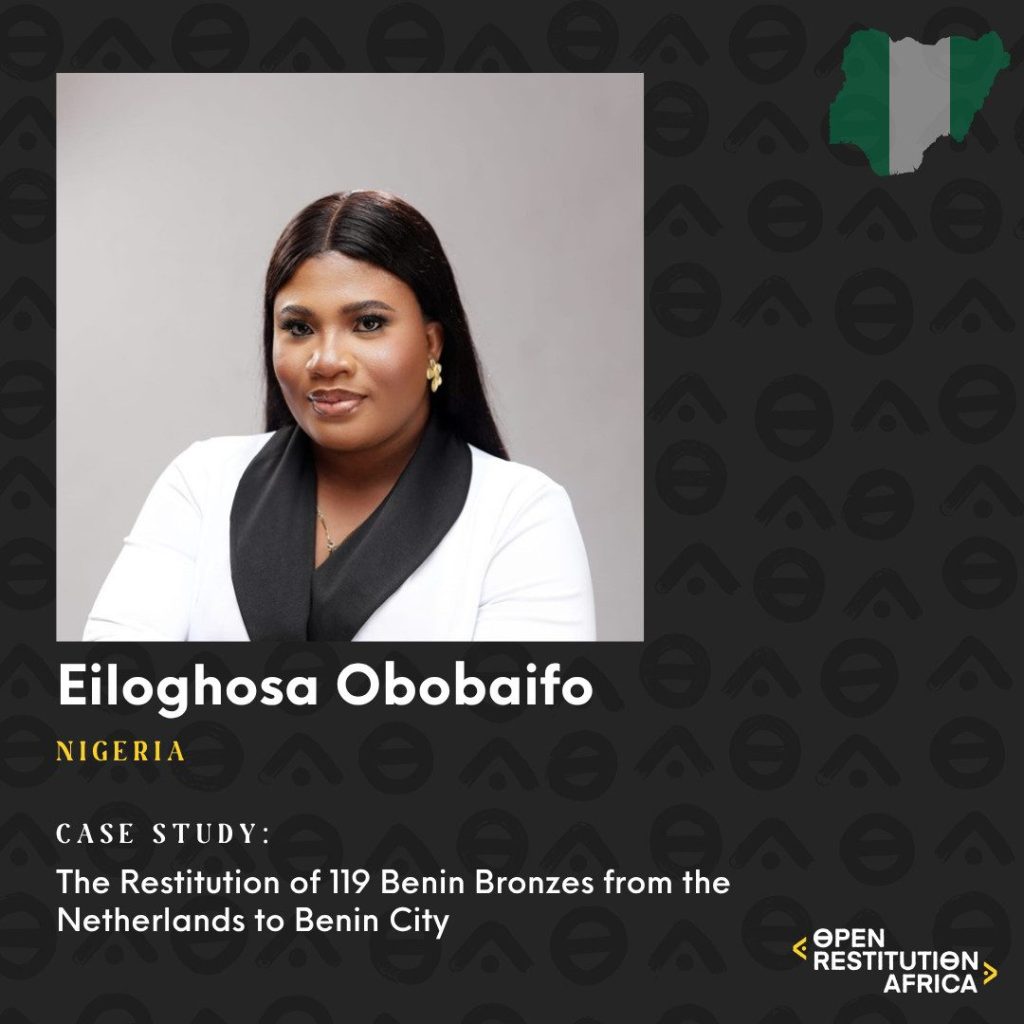
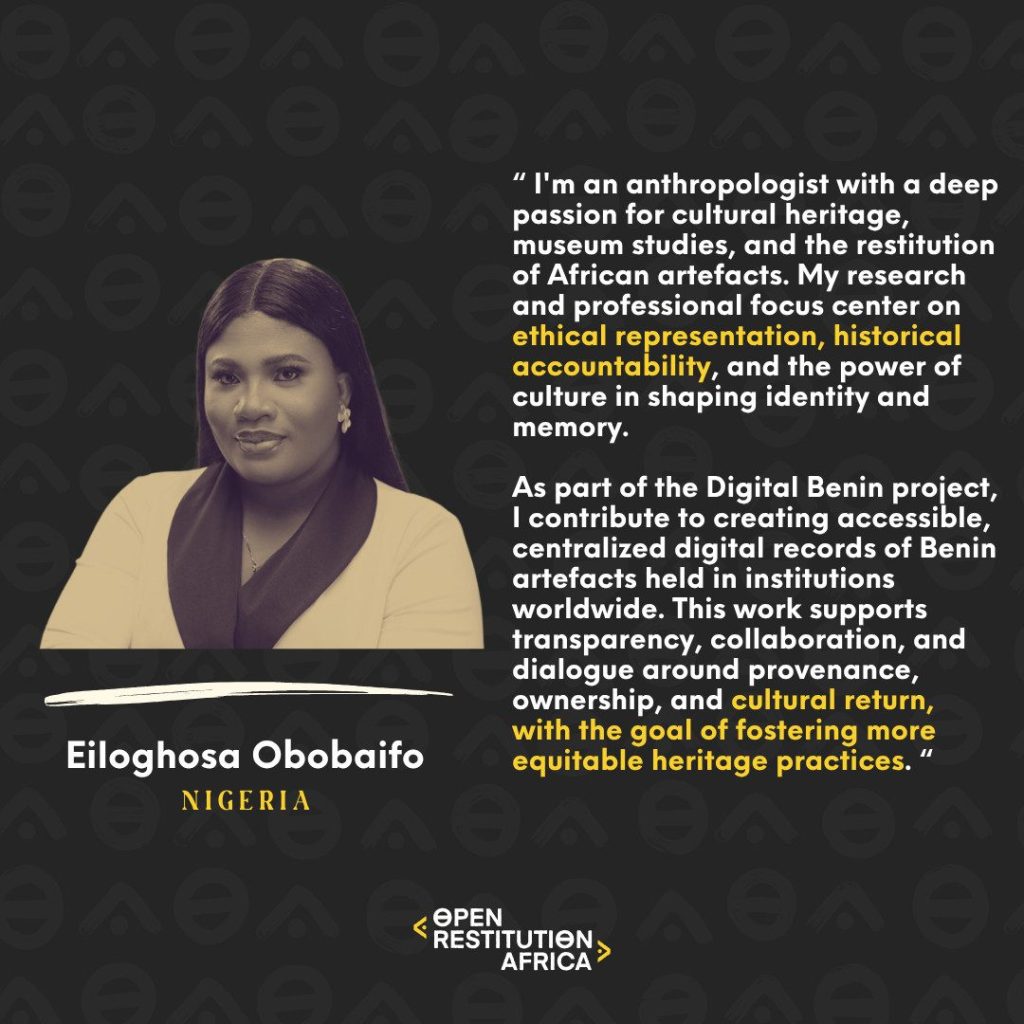
Eiloghosa Obobaifo is an anthropologist with a deep passion for cultural heritage, museum studies and the restitution of African artefacts. Her work focuses on ethical representation, historical accountability and the power of culture in shaping identity and memory. As part of the Digital Benin project, she contributes to creating accessible, centralised digital records of Benin artefacts held in institutions worldwide.
Her case study examines the return of 119 Benin Bronzes from the Netherlands to Benin City, marking a watershed moment in global restitution discourse. She explores how restitution reshapes ideas of heritage, postcolonial justice and community-led memory work.
Elisha Clever Rukundo – Rwanda
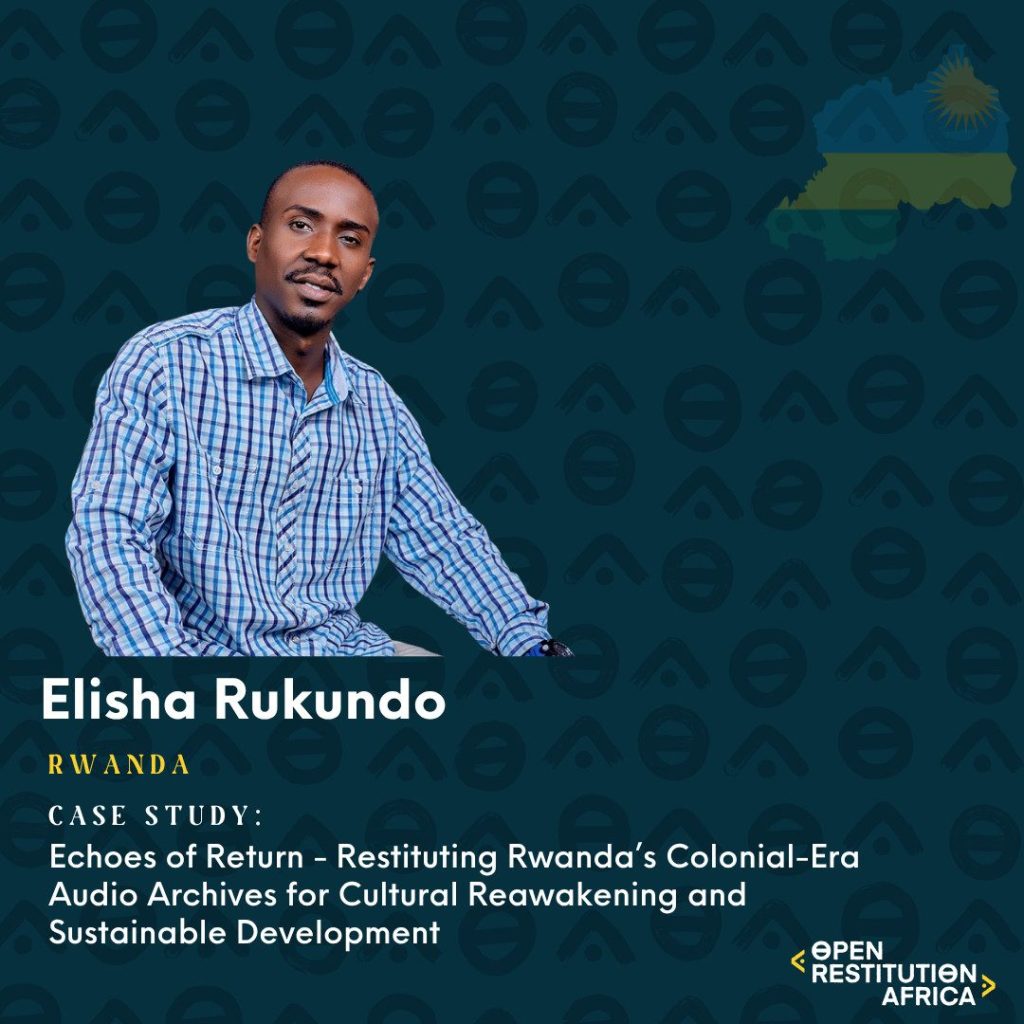
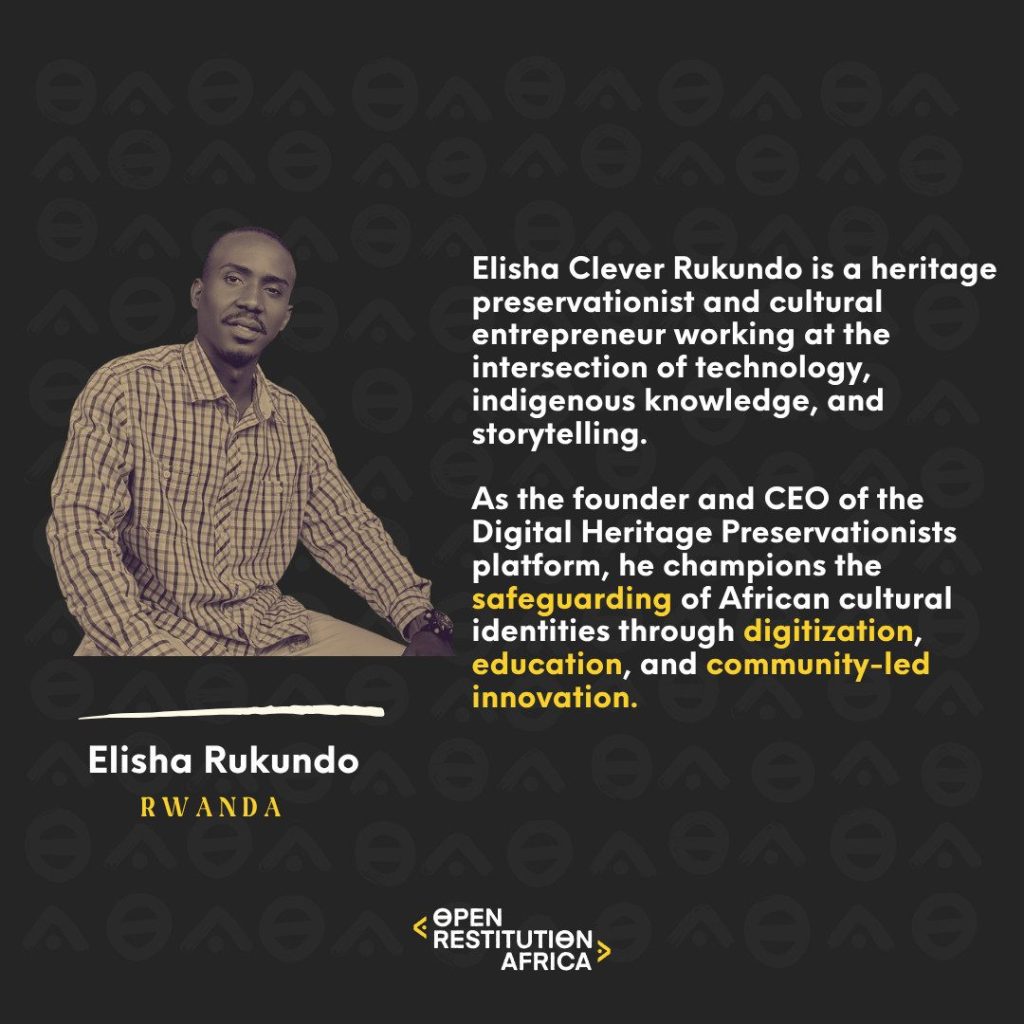
Elisha Rukundo is a heritage preservationist and cultural entrepreneur working at the intersection of technology, indigenous knowledge and storytelling. As the founder and CEO of the Digital Heritage Preservationists platform, he champions the safeguarding of African cultural identities through digitisation, education and community-led innovation.
His case study, “Echoes of Return”—the restitution of 4,095 colonial-era Rwandan audio recordings archived in European institutions. These audio assets include ceremonial chants, lullabies, oral traditions and ritual songs that constitute vital intangible heritage. His research positions restitution as both historical justice and a catalyst for cultural resilience, community development and inclusive national planning.
Lineo Segoete – Lesotho


Lineo Segoete is a versatile artistic research-practitioner and cultural worker whose work spans history, arts education and collaborative cultural production. Her practice is rooted in critical literacy and building bridges between academia and creative practice. She is the co-director of A.R.T.1.S.T (Art First), co-convenor of the Pan-African arts research collective Another Roadmap Africa Cluster (ARAC), and a 2024 Museumslab Fellow.
Her case study examines 80 of King Moshoeshoe’s belongings in the British Museum, challenging the official narrative where “Britain is framed as a saviour and trusted friend.” Through critical reading of historical records, she reveals the tensions and negotiations that were actually at play, showing how King Moshoeshoe gave these objects around the same time Britain betrayed their promise to ward off the Boers. Her work reframes this collection as potential compensation for land that will never be returned.
Mohamed Ahmed – Egypt
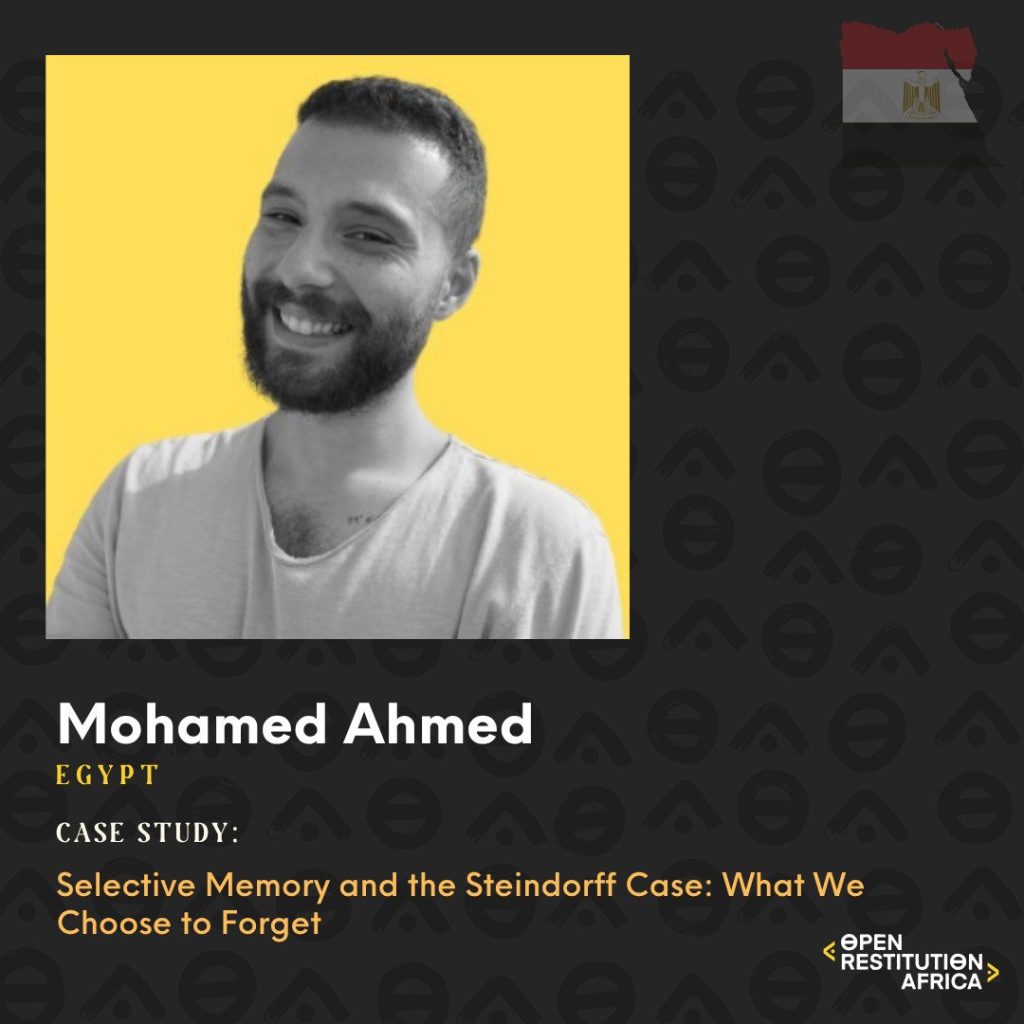
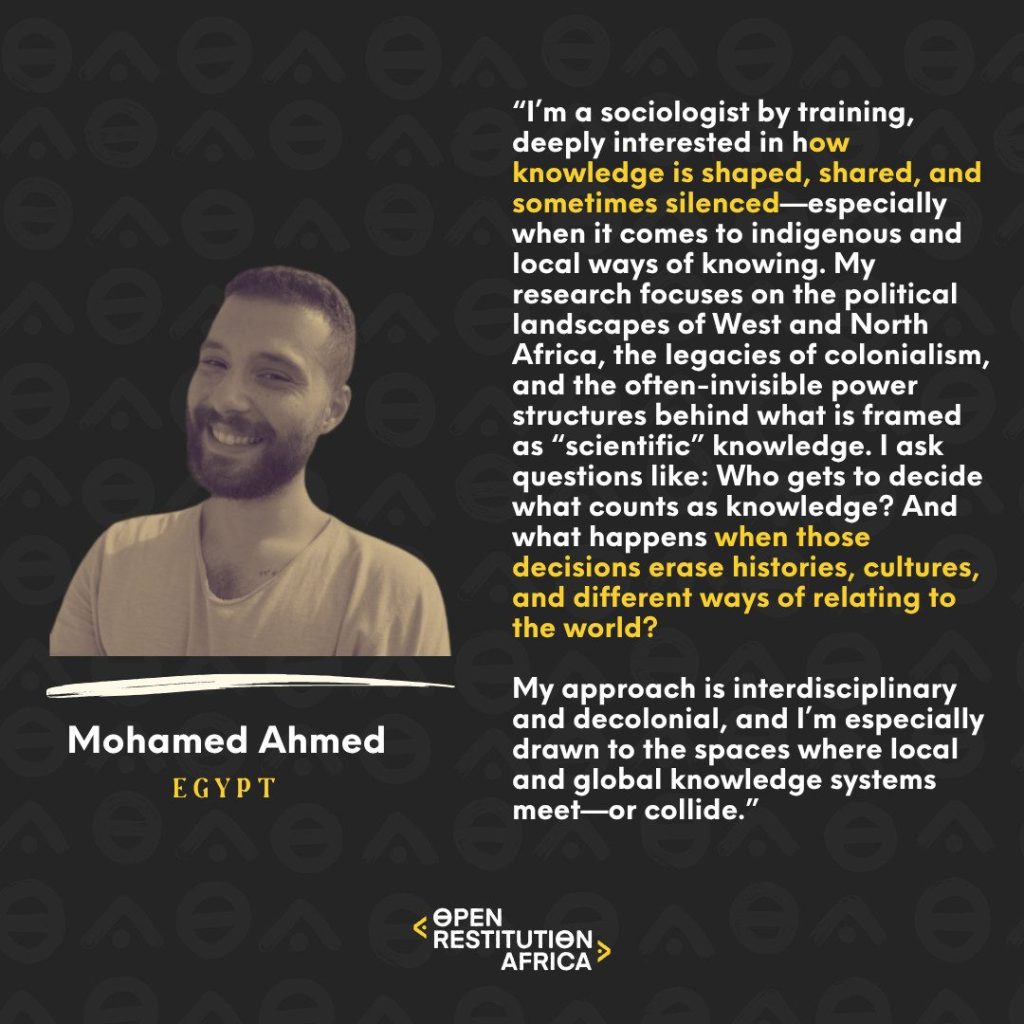
Mohamed Ahmed is a sociologist, researcher and student organiser committed to rethinking what counts as knowledge and who gets to decide. Grounded in justice, his work challenges systems that have long excluded and silenced local ways of knowing. He co-founded a critical student group at the University of Leipzig focused on decolonising classrooms through film, literature and discussion.
His case study “Selective Memory and the Steindorff Case” examines how the University of Leipzig resisted returning a collection to Georg Steindorff’s heirs while using similar justifications to dismiss Egyptian claims for restitution of colonial-era artefacts. He questions why Nazi-looted property should be considered separately from artefacts acquired under imperial exploitation, highlighting inconsistencies in restitution policies.
Mohamed W. Fareed – Egypt
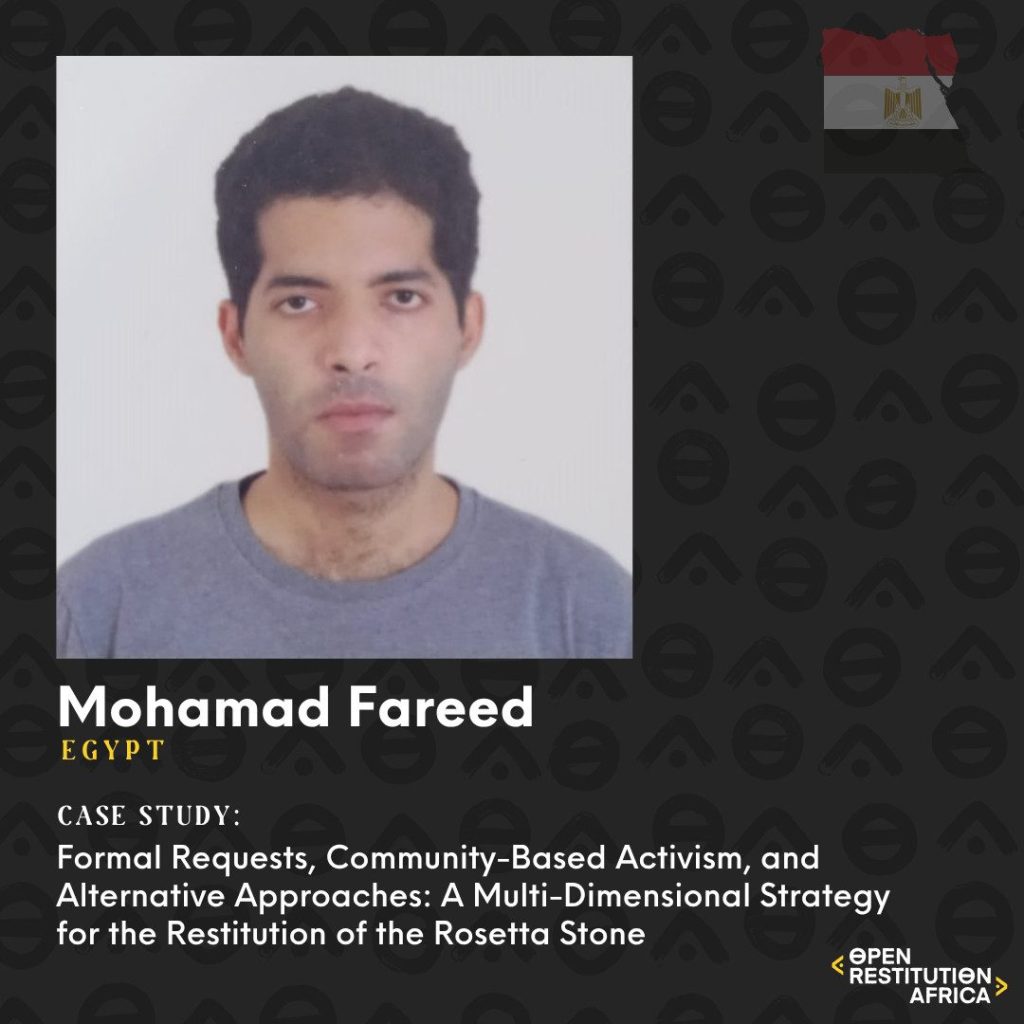
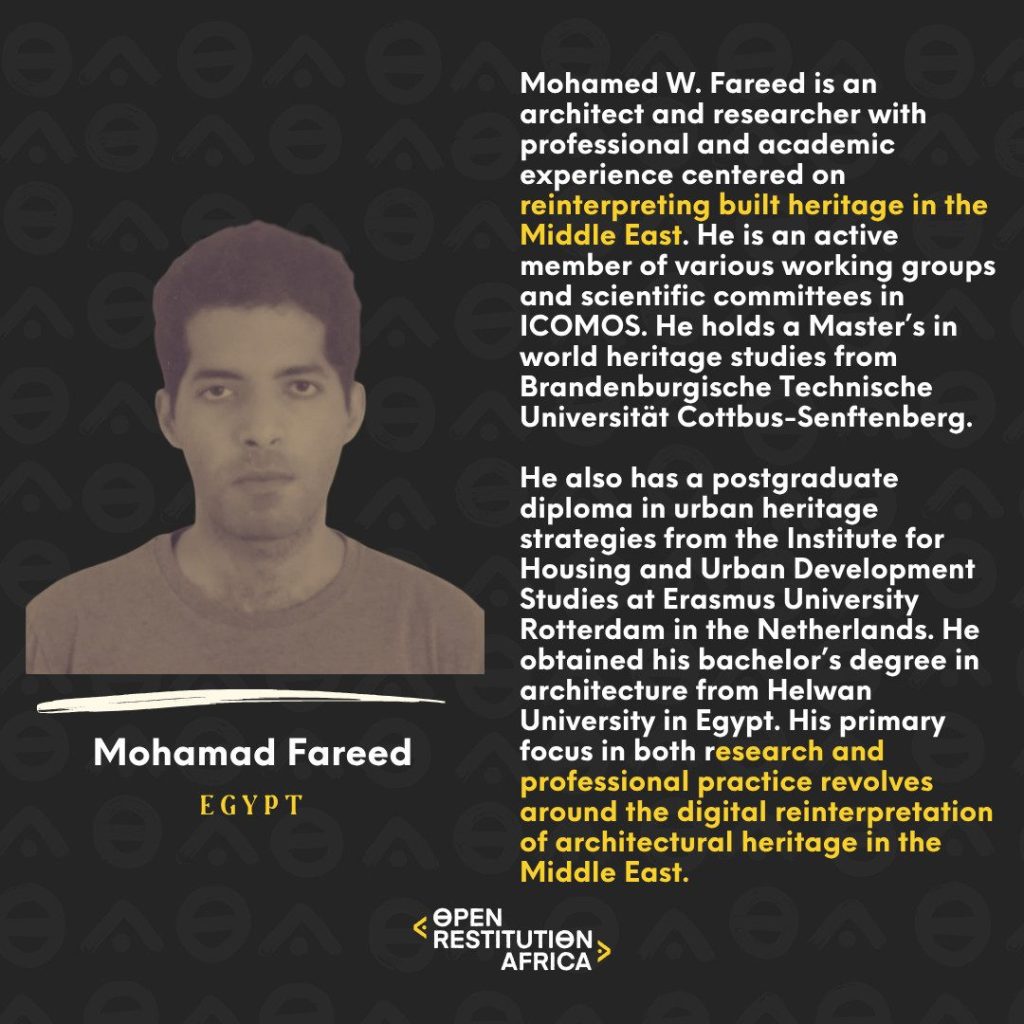
An architect and researcher, Mohamed W. Fareed brings academic and professional expertise centred on the reinterpretation of built heritage in the Middle East. His current focus lies in the digital reimagining of architectural heritage and the ethical engagement with historical spaces. He is an active member of various ICOMOS working groups and holds degrees from institutions across Egypt, Germany, and the Netherlands.
His case study investigates multiple strategies for the restitution of the Rosetta Stone, analysing formal state requests, community-based activism and alternative digital approaches. His multi-dimensional research explores how Egypt has attempted to reclaim this iconic object while examining global trends in cultural property restitution and the role of digital initiatives as innovative forms of engagement.
Omar Idtnaine – Morocco
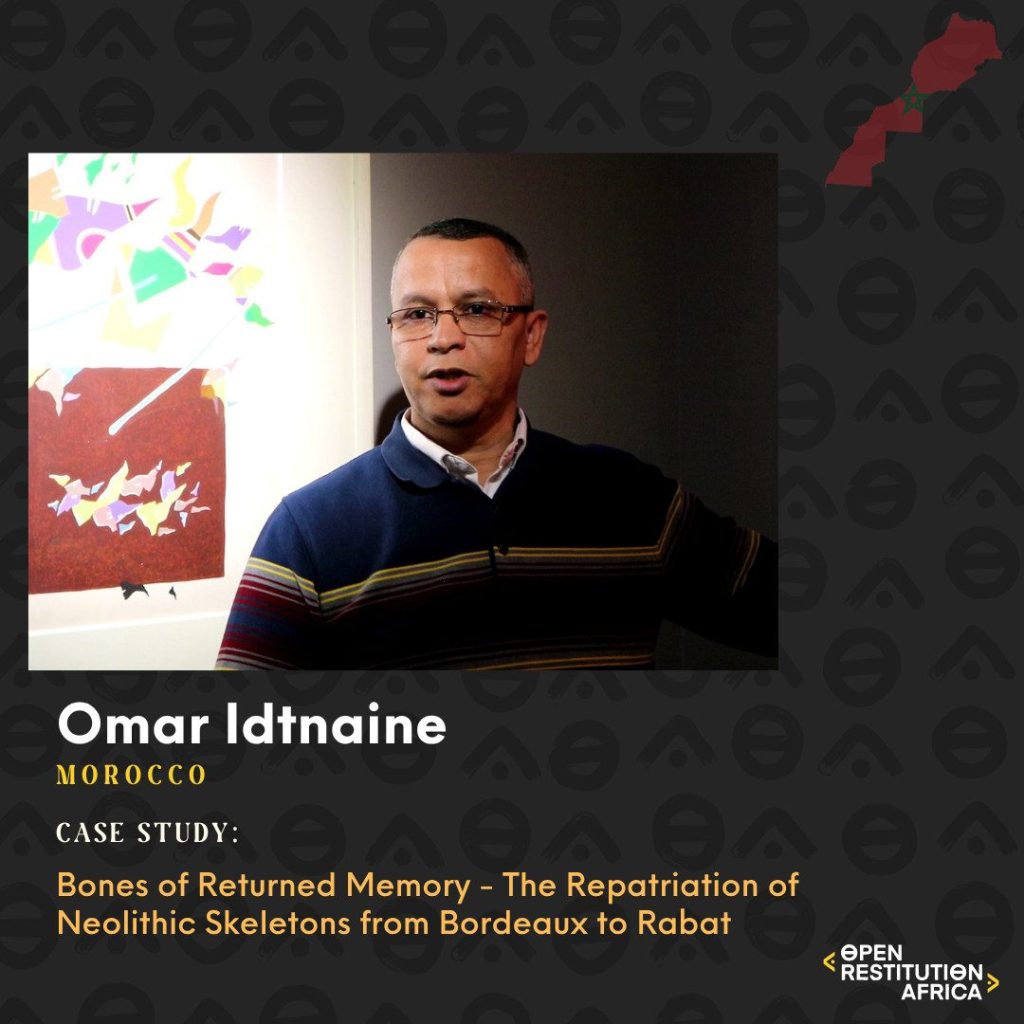
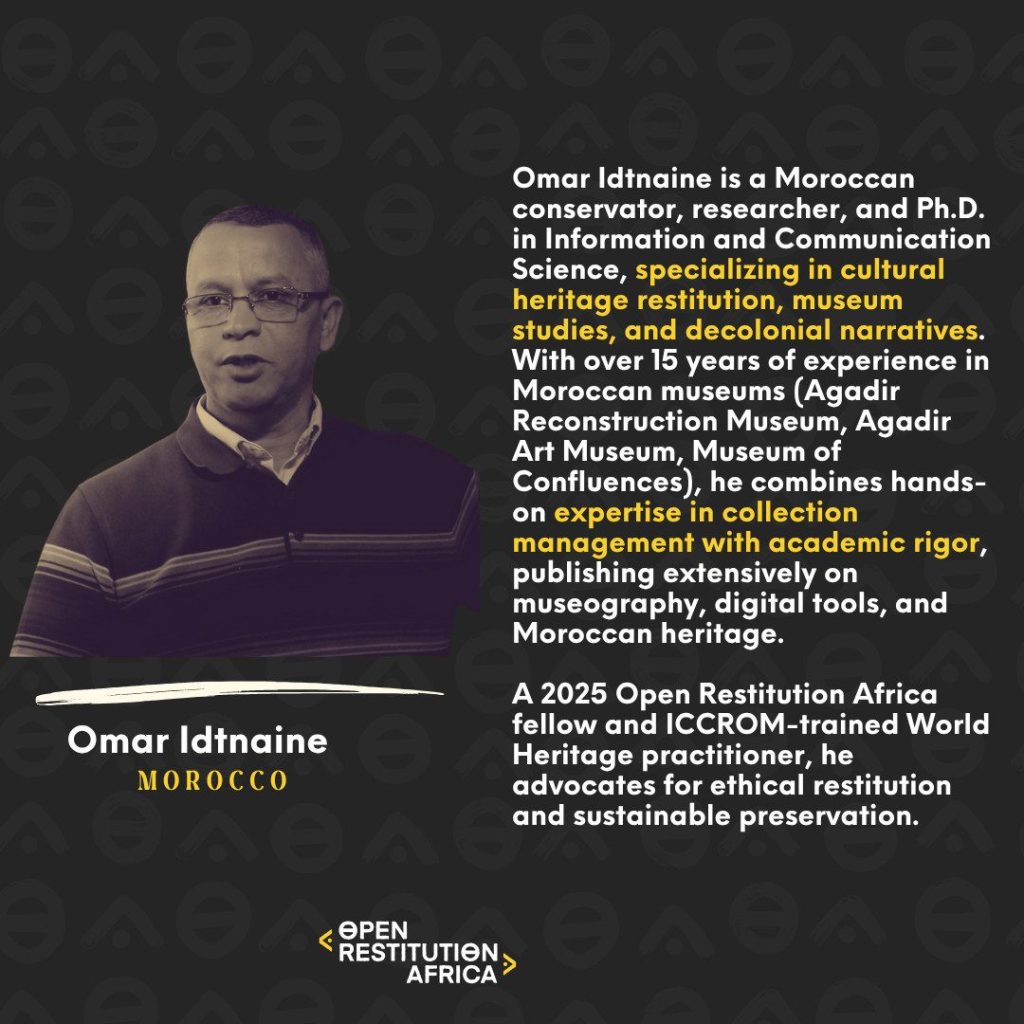
Omar Idtnaine is a Moroccan conservator, researcher and PhD holder in Information and Communication Science. With more than 15 years of experience in museum work, his scholarship and practice explore restitution, museum studies and decolonial narratives. Omar’s work bridges theory and practice, advocating for ethical restitution and sustainable preservation as a 2025 Open Restitution Africa fellow and ICCROM-trained practitioner.
In his case study “Bones of Returned Memory”, he documents the repatriation of Neolithic human skeletons from the University of Bordeaux to Morocco in 2019. As a native of the region where these 4,000-5,000-year-old remains were excavated, Omar brings both professional expertise and personal connection: “These skeletons represent a tangible link to the lives of my ancestors and the history of my homeland.”
Peter Jegede – Nigeria
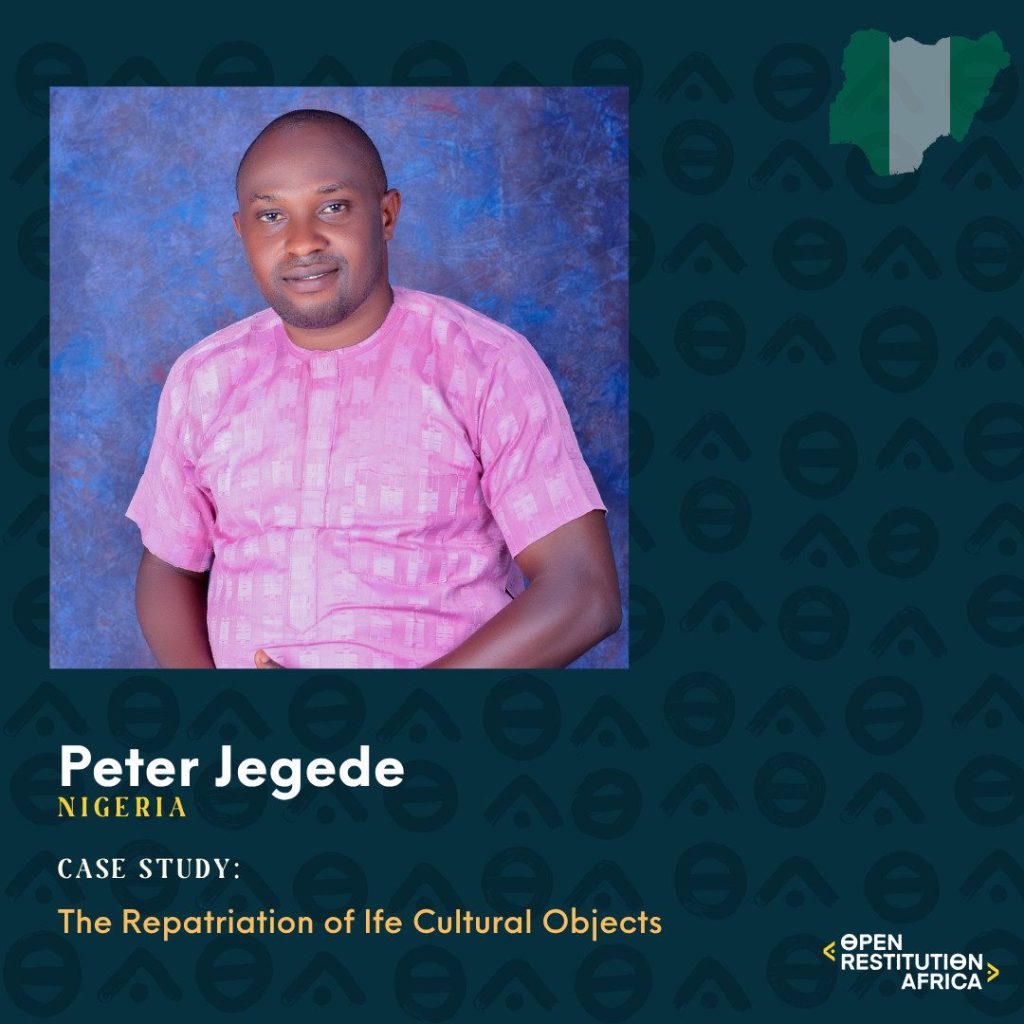
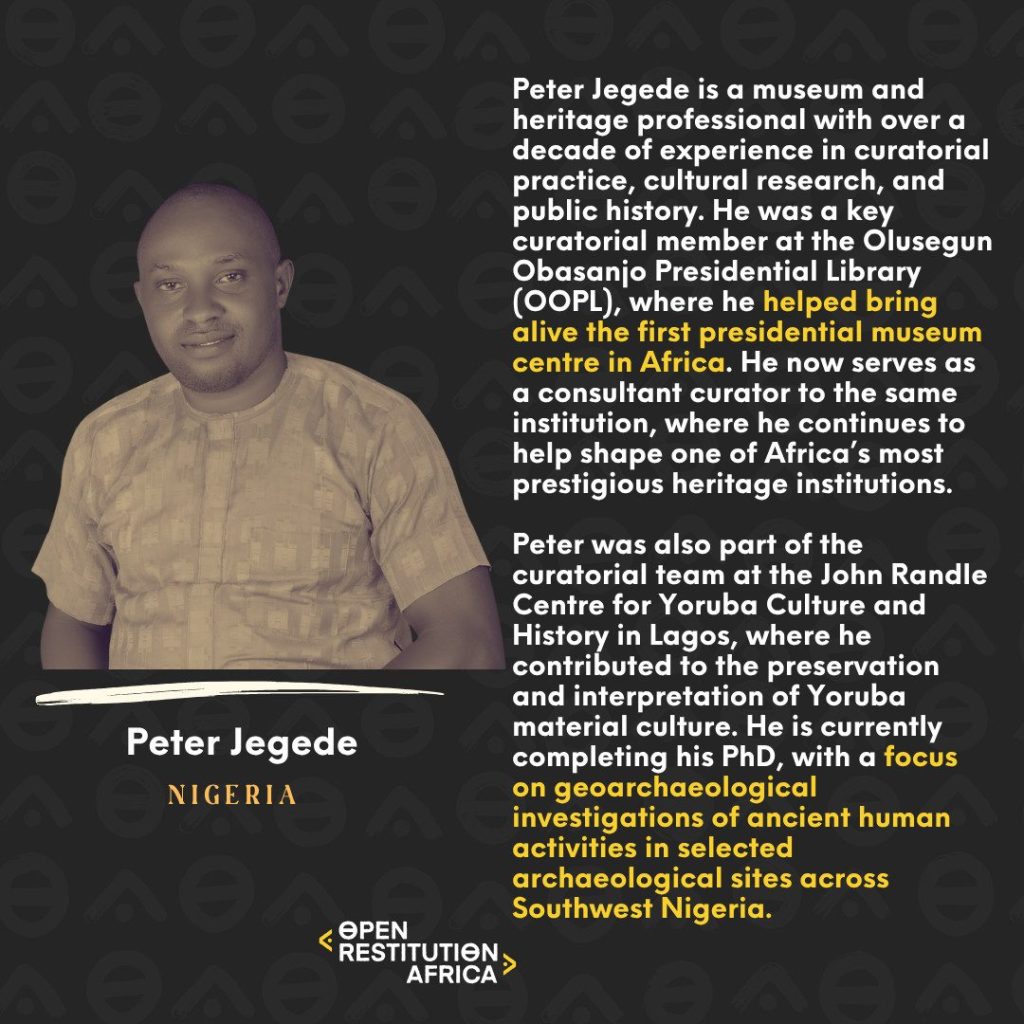
Peter Jegede is a museum and heritage professional with over a decade of experience in curatorial practice, cultural research and public history. As a former curator at the Olusegun Obasanjo Presidential Library (OOPL), he helped establish the first presidential museum centre in Africa. He now continues his work as a consultant curator, committed to ensuring that African histories are preserved and told with local voice and integrity.
His case study follows the repatriation of Ife cultural objects—a 600-year-old terracotta head from the Netherlands, an Ife bronze sculpture from Mexico and a 14th-century brass head from the Metropolitan Museum of Art. Importantly, he gives voice to the people of Ife who are the descendants and custodians of this cultural heritage, showing how restitution is not just about returning objects, but about restoring dignity, history and memory.
Temidayo Odutokun – Nigeria


Temidayo Odutokun, is an art curator and cultural historian with over 12 years of experience at the National Gallery of Art, Nigeria. Passionate about African histories and visual cultures, she is deeply committed to empowering historic narratives that shape more just and inclusive futures. She has also worked as an independent curator in Ghana and consultant for UNECA’s Africa Hall renovation project in Ethiopia.
Her case study explores the restitution efforts of Oba Akenzua II of Benin (1933-1978) and the significance of the Benin Royal Stools. She examines the social systems of the Benin kingdom at its height, the notorious 1897 punitive expedition that resulted in massive looting, and the impact of these objects’ absence from their places of origin. Her research projects the significance of successful restitution efforts for one of the world’s greatest civilisations.
Victoria Phiri Chitungu – Zambia
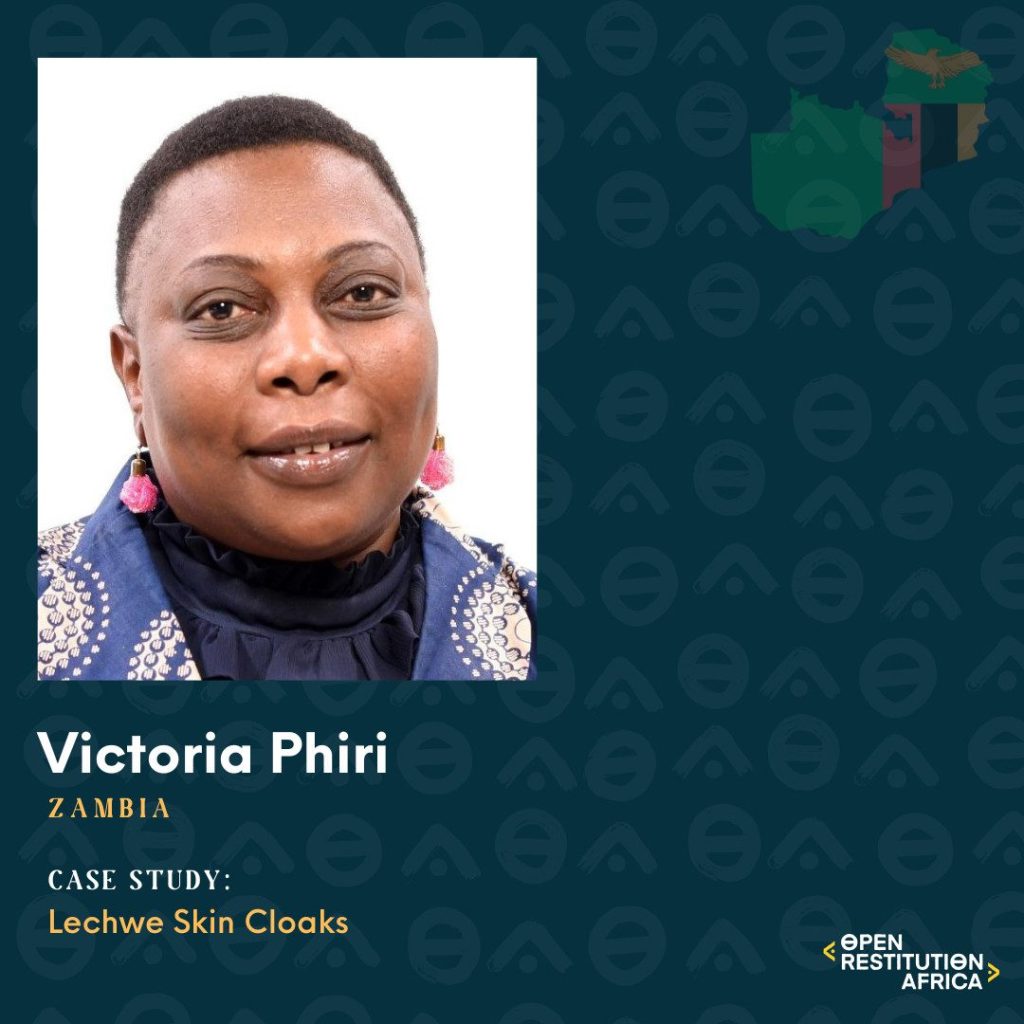
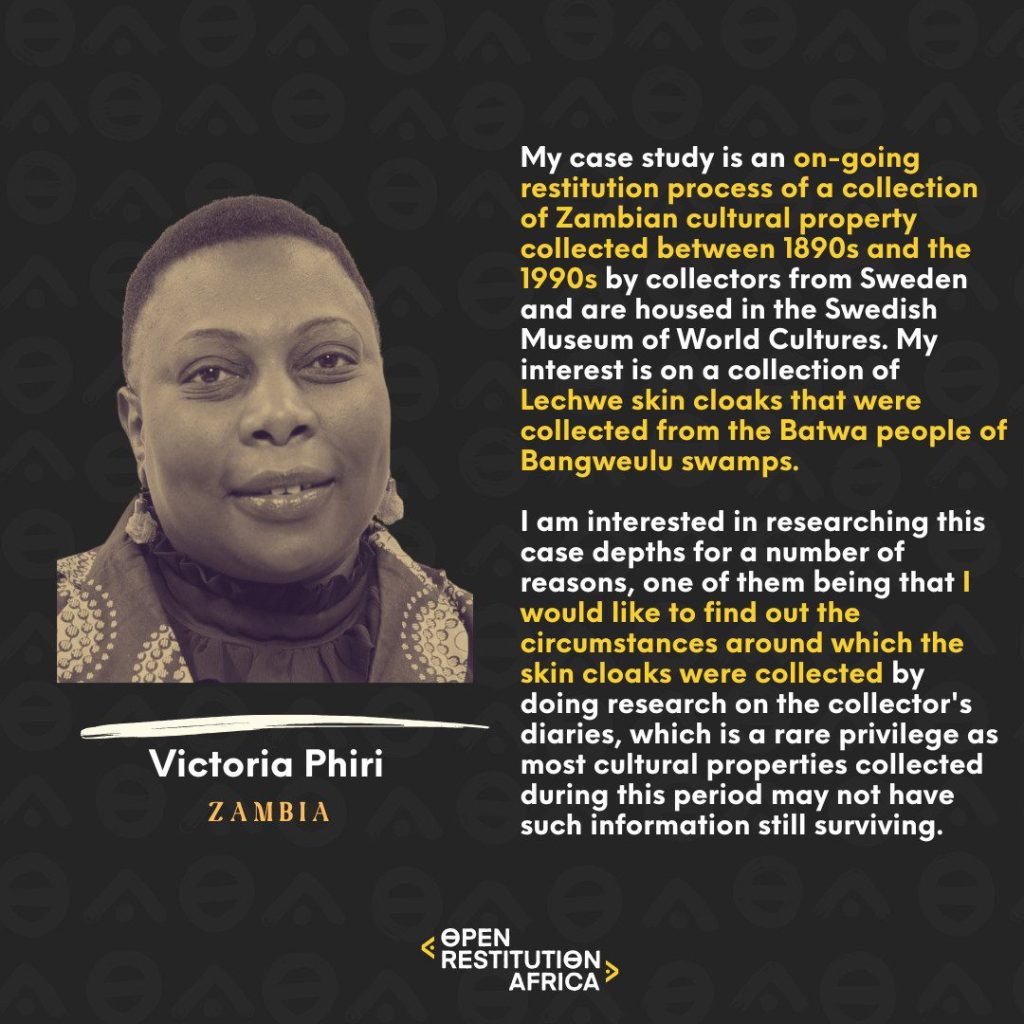
Victoria Phiri is the Director of the Livingstone National Museum in Zambia and a cultural historian with more than 20 years of experience at the National Museums Board of Zambia. She has conducted extensive field research across the country, contributing to permanent exhibitions and advancing the documentation of Zambia’s diverse cultural heritage. She serves as a Board Member for the African Museums and Heritage Restitution Organisation (AFRIMUHARE).
Her case study documents an ongoing restitution process of Lechwe skin cloaks collected from the Batwa people of Bangweulu swamps, now housed in Sweden’s Museum of World Cultures. These rare, skilfully decorated cloaks represent patterns that can no longer be found among the Batwa today due to colonisation and Christianisation. With access to the original collector’s diaries—a rare privilege—she is conducting provenance research while engaging both the community of origin and Zambian museums to accelerate restitution.
Through our network of Case Study Researchers, we are building an open and accessible knowledge bank that supports heritage practitioners, community representatives and policymakers alike. Check out our previous case studies here and stay updated with our work through our social media accounts & newsletter (sign up below)

